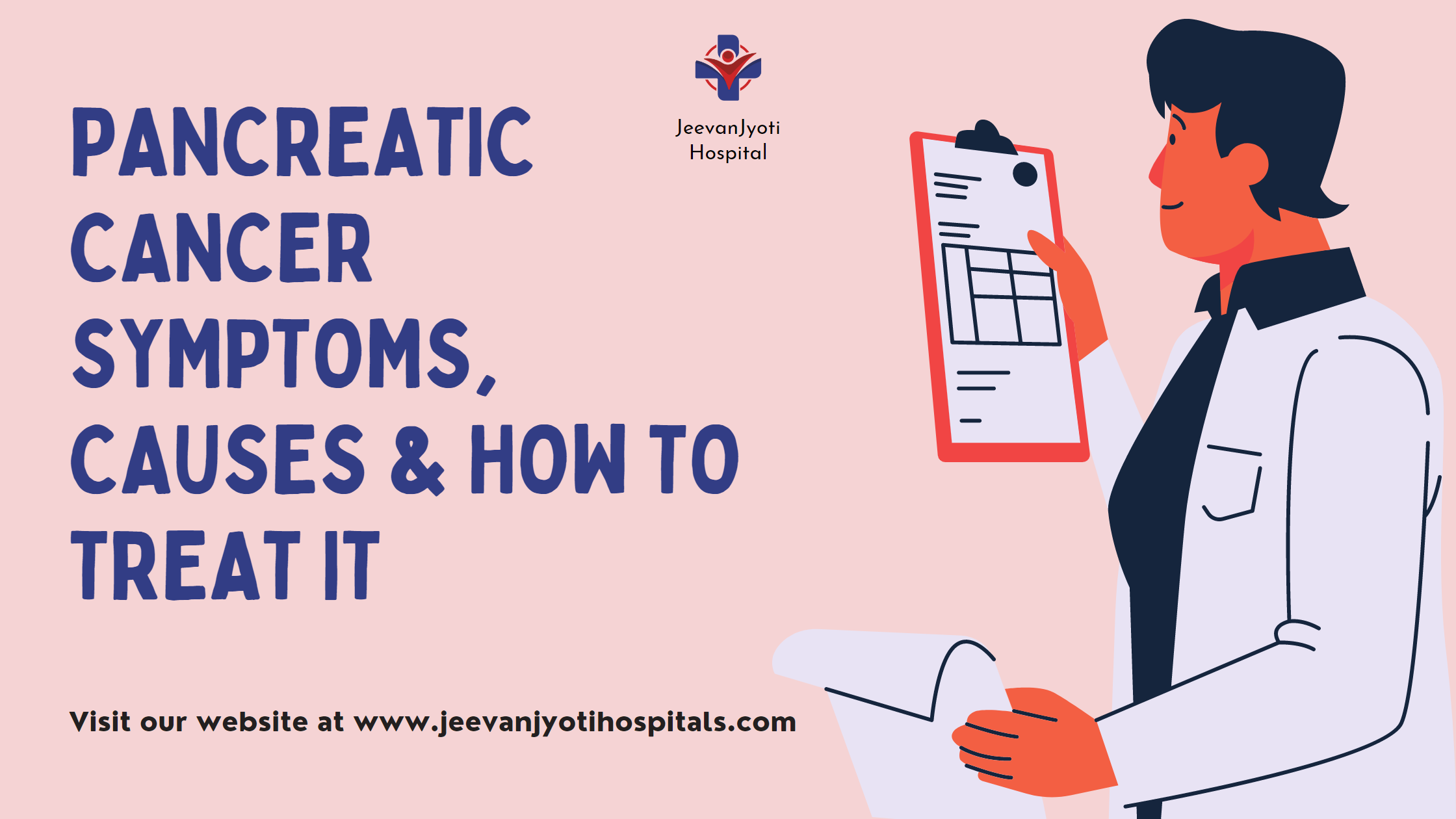Overview
People often call pancreatic cancer a “silent disease” because its signs don’t show up until the disease gets worse. The pancreas is an organ that looks like an elongated pear. It sits behind many other organs, such as the stomach, small intestine, spleen, liver, gallbladder, and bile ducts. If a cancerous tumor growth forms in the pancreas, there is a higher chance that it will spread to other parts. This may not be noticed until the tumor is too large to be treated.
Multiple common symptoms may indicate an advanced stage of pancreatic cancer or an unrelated illness.
Pancreatic Cancer Symptoms
Pancreatic cancer’s early symptoms cannot be predicted. Instead, the progression of the disease can cause a wide range of abnormal symptoms, such as:
- Loss of appetite
- Tiredness
- Upper abdominal pain (that may spread to the back)
- Light-colored poop
- Dark colored pee
- Unexplained weight loss
- Itchy skin
- Blood clots in the body
- Nausea and vomiting
- Worsening diabetes
If a person has diabetes or pancreatitis, it could be a sign that they have pancreatic cancer. When you have clear signs of pancreatic cancer, like redness and weight loss, you need to see a doctor right away.
Pancreatic Cancer Causes
Even though there doesn’t seem to be a reason for pancreatic cancer, it’s hard to figure out what causes it. Still, several factors have been identified that make this condition more likely to happen.
- Long-standing diabetes
- Chronic pancreatitis
- Smoking
- Obesity
- History of pancreatic cancer in the family
- Aging
- Lifestyle factors
In roughly 10% of cases, pancreatic cancer is hereditary and passed down from parents to offspring. Certain genes can heighten an individual’s likelihood of developing pancreatitis, which, in turn, increases the risk of developing pancreatic cancer.
Pancreatic Cancer Treatment
Most of the time, pancreatic cancer is found at a late stage, which makes treatment hard and requires a team of specialists if the tumor is large. Cancer treatment depends on many things, such as where the growth is, what stage it is in, whether or not it is cancerous, and how healthy the patient is overall.
Pancreatic cancer treatment may involve surgery, chemotherapy, radiation therapy, vaccination, pain management, immunotherapy, and dietary changes.
Surgery
The pancreatectomy is a procedure that involves the removal of all parts of the pancreas or, in some cases, the removal of a section of healthy tissue surrounding the tumor, depending on its location and size. Afterward, a six-month course of chemotherapy is typically planned, which greatly improves the chances of a cure.
Radiation Therapy
High-energy rays are used in radiation therapy to kill cancer cells. Chemotherapy and radiation treatment can be used together to reduce cancer cells before surgery. It can also help control and relieve some of the symptoms of advanced cancer.
Chemotherapy
Chemotherapy utilizes drugs that go after cancer cells, especially after surgery, to stop the cancer from returning back. If surgery can’t be done for some reason, chemotherapy can help control and relieve some of the disease’s effects.
Immunotherapy
Immunotherapy utilizes drugs that make the immune system work better so it can find and kill cancer cells. It is usually used with chemotherapy and is also being studied as part of new pancreatic cancer clinical studies.
Targeted Therapy
Genetic testing is used to determine if targeted therapy is appropriate for a patient. This treatment focuses on cancer-specific genes, proteins, or the tissue environment that contribute to cancer growth and survival. It works by obstructing the growth and spread of cancer cells and minimizing damage to healthy cells.
Pancreatic cancer treatment can effectively ease symptoms and improve the patient’s comfort level.
